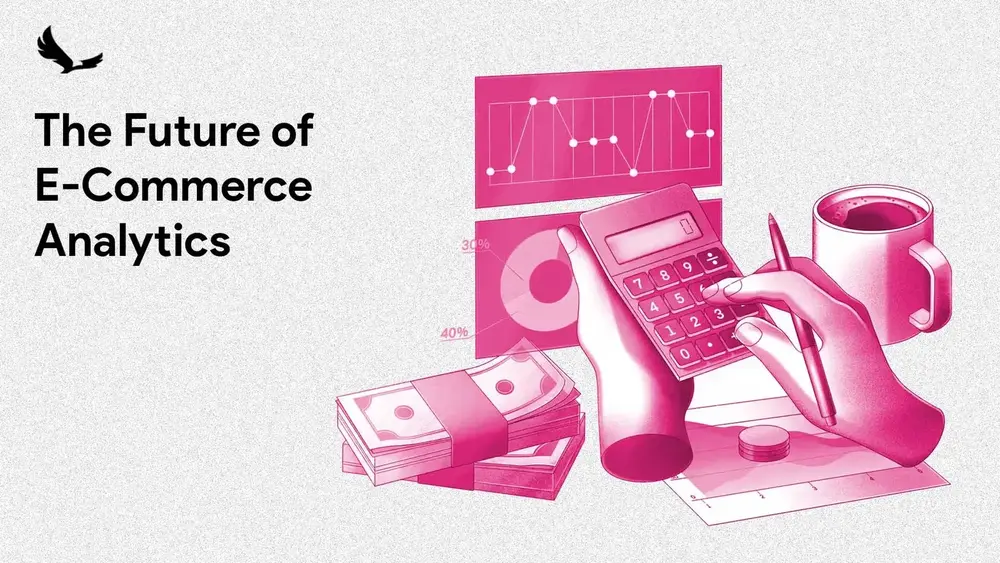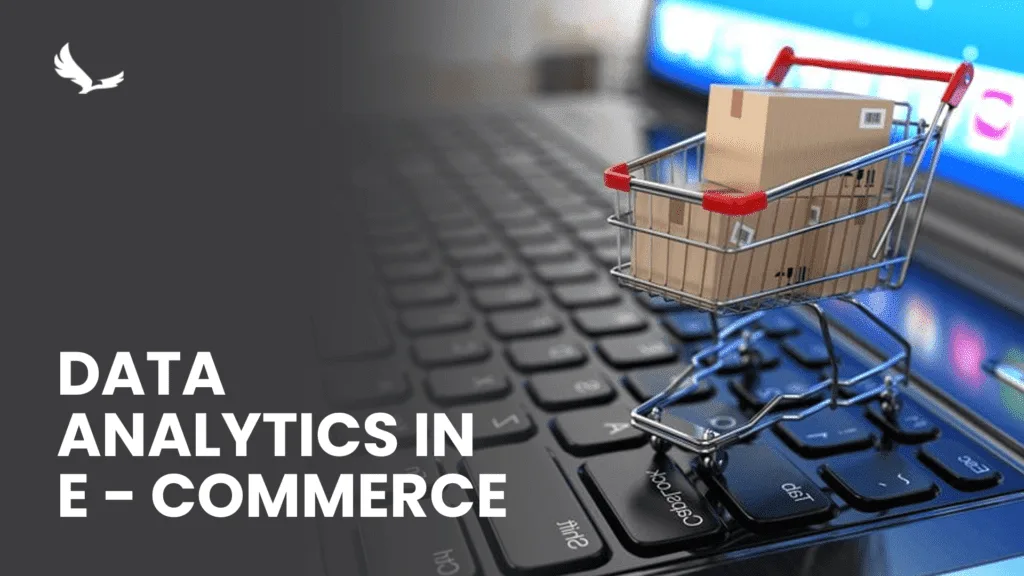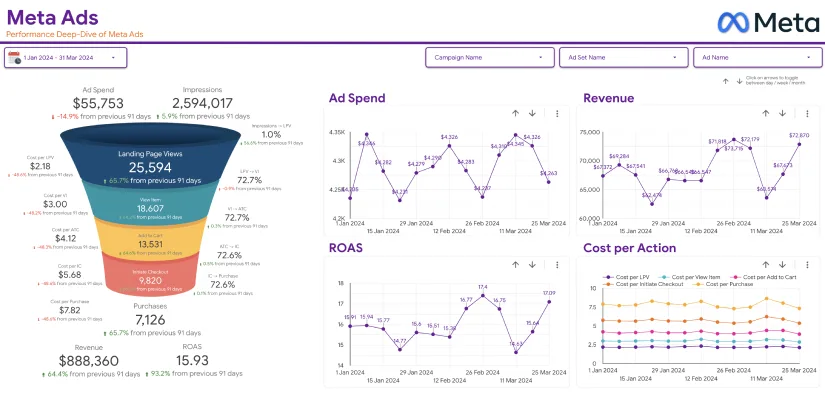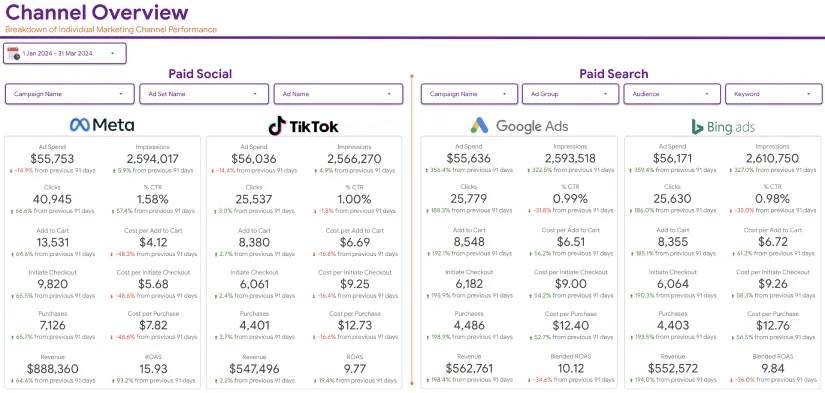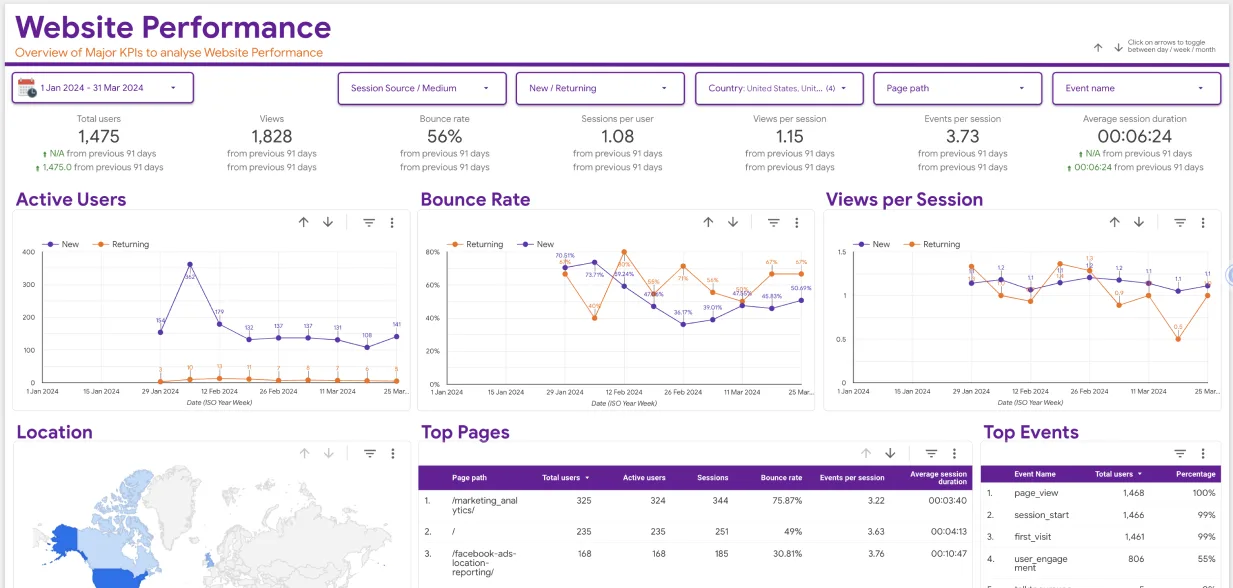In today’s digital age, e-commerce has become an integral part of the global economy, revolutionizing the way businesses operate and consumers shop. With the exponential growth of online retail platforms, the need for advanced analytics to understand consumer behavior and predict market trends has never been more critical. This article explores the future of e-commerce analytics, focusing on predictive insights and their impact on consumer behavior.
Introduction to E-Commerce Analytics
E-commerce analytics involves the collection, analysis, and interpretation of data to optimize online sales strategies and enhance the customer experience. Traditionally, businesses have relied on basic metrics such as website traffic and conversion rates to gauge performance. But in today’s world, data analytics has huge importance in the business.
As competition intensifies and consumer preferences evolve, the future of analytics is changing dramatically, which is why there is a growing demand for more sophisticated analytics tools.
Evolution of E-Commerce Analytics
The field of e-commerce analytics has undergone significant evolution in recent years. Initially, businesses relied on descriptive analytics to review past performance and identify trends. While descriptive analytics provided valuable insights, they lacked the ability to anticipate future outcomes. This led to the emergence of predictive analytics, which leverages advanced algorithms and statistical models to forecast consumer behavior and market trends.
Predictive Insights in E-Commerce
Predictive insights refer to the ability to forecast future outcomes based on historical data and statistical analysis. In the context of e-commerce, predictive analytics enables businesses to anticipate customer needs, personalize marketing campaigns, and optimize inventory management. By harnessing the power of predictive insights, companies can make data-driven decisions that drive revenue growth and enhance customer satisfaction.
Technologies Driving Predictive Analytics
Several technologies play a pivotal role in driving predictive analytics in e-commerce. Machine learning algorithms, for example, can analyze vast amounts of data to identify patterns and trends that may not be apparent to human analysts. Additionally, the proliferation of IoT devices has generated a wealth of real-time data, allowing businesses to gain deeper insights into consumer behavior and preferences.
Understanding Consumer Behavior
Consumer behavior plays a central role in shaping the e-commerce landscape. Understanding why consumers make certain purchasing decisions is crucial for businesses seeking to attract and retain customers. Factors such as price sensitivity, brand loyalty, and product reviews can all influence purchasing behavior, highlighting the importance of predictive analytics in gaining actionable insights.
Leveraging Predictive Analytics for Personalization
One of the key benefits of predictive analytics in e-commerce is its ability to personalize the shopping experience for individual customers. By analyzing past interactions and preferences, businesses can tailor product recommendations, discounts, and promotions to match each customer’s unique needs and preferences. This not only enhances customer satisfaction but also increases the likelihood of repeat purchases and brand loyalty.
Challenges and Limitations
While predictive analytics holds great promise for e-commerce businesses, it is not without its challenges. Data privacy concerns, for example, have become a major issue in an era of heightened awareness about online privacy. Moreover, the accuracy and reliability of predictive models can be affected by factors such as incomplete or biased data, highlighting the need for robust data management practices.
Future Trends in E-Commerce Analytics
Looking ahead, several trends are poised to shape the future of e-commerce analytics. The integration of IoT devices, for example, will enable businesses to collect more granular data about consumer behavior in real-time. Additionally, advancements in artificial intelligence and machine learning are expected to further enhance the predictive capabilities of e-commerce analytics platforms, enabling businesses to stay one step ahead of the competition.
Implications for Businesses
For e-commerce businesses, embracing predictive analytics is no longer a luxury but a necessity. By leveraging predictive insights to anticipate customer needs and preferences, businesses can gain a competitive edge in an increasingly crowded marketplace. From personalized marketing campaigns to optimized inventory management, the benefits of predictive analytics extend across the entire e-commerce ecosystem.
Conclusion
In conclusion, the future of e-commerce analytics lies in predictive insights and their ability to uncover hidden patterns and trends in consumer behavior. By harnessing the power of predictive analytics, businesses can make smarter decisions, drive revenue growth, and enhance the overall customer experience. As technology continues to evolve, the role of predictive analytics in e-commerce will only become more indispensable.
FAQs
1. What is predictive analytics in e-commerce?
Predictive analytics in e-commerce involves using historical data and statistical analysis to forecast future outcomes, such as consumer behavior and market trends.
2. How can businesses leverage predictive analytics for personalization?
Businesses can leverage predictive analytics to personalize the shopping experience for individual customers by analyzing past interactions and preferences to tailor product recommendations and promotions.
3. What are some challenges associated with predictive analytics in e-commerce?
Challenges associated with predictive analytics in e-commerce include data privacy concerns, accuracy, and reliability issues, and the need for robust data management practices.
4. What are some future trends in e-commerce analytics?
Future trends in e-commerce analytics include the integration of IoT devices for real-time data collection, advancements in artificial intelligence and machine learning, and enhanced predictive capabilities.
5. Why is predictive analytics important for e-commerce businesses?
Predictive analytics is important for e-commerce businesses because it enables them to anticipate customer needs and preferences, optimize marketing strategies, and gain a competitive edge in the marketplace.

